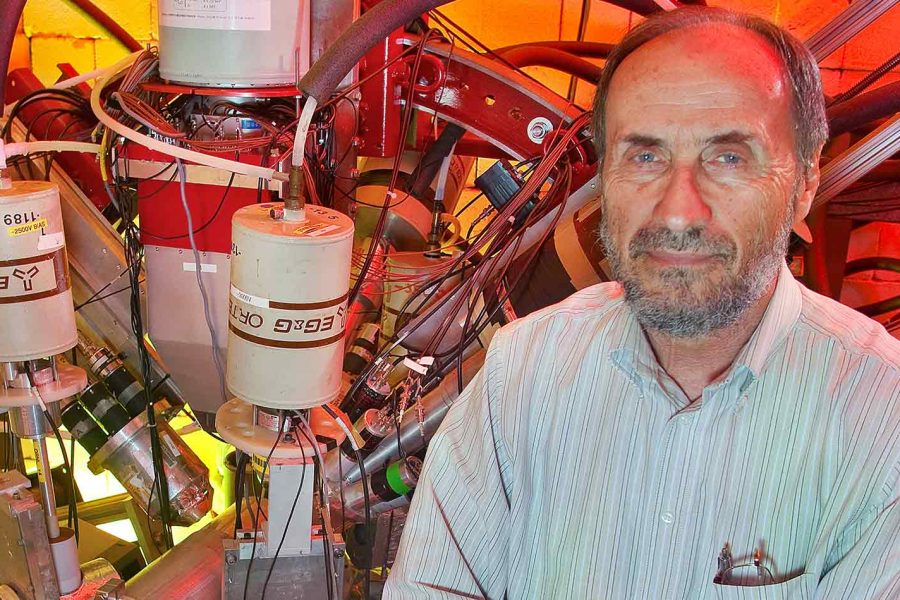
Florida State’s esteemed physics professor Samuel Tabor has earned every accolade in the book for his meaningful impact on students and the university over the past 35 years:
“Brilliant.” “Exceptional.” “Deeply encouraging.” “Great to work with.”
Those were just some of the words coworkers and students used to describe Tabor as they nominated him for the prestigious 2019 Mentoring Award from the American Physical Society Division of Nuclear Physics (DNP).
Tabor won, hands down.
The national award included a citation recognizing his inspired mentorship of physics students and nuclear scientists.
“He has enthusiastically and successfully mentored men and women at all levels from undergraduates through early career faculty.”
Tabor’s colleague Mark Riley, dean of The Graduate School at FSU, had a punchier description of his longtime friend.
“This is a spectacular national recognition of Superstar Sam,” said Riley, a world-renowned nuclear physicist in his own right.
Riley, a native of the United Kingdom with a doctorate in nuclear physics, has watched Tabor elevate FSU students for decades. Riley expressed his emotions about the honor for his friend with a bit of good-natured British humor.
“I am so mightily chuffed with the news that Sam has received this national recognition,” Riley said. “His 40-year record of mentoring graduate and undergraduate students is simply amazing. Through the decades, students have said, ‘Sam is great to work with,’ and those positive words get passed along from student to student.”
Tabor has dedicated himself to mentorship ever since he arrived at FSU as a visiting assistant professor in 1979. Over the past 40 years, he has helped many students become highly accomplished scientists in the physics community.
Frank Moore and Carl Gross were two of Tabor’s earliest students in the 1980s. They went on to have successful careers at national research laboratories supervised by the U.S. Department of Energy.
They both praised his “tireless” efforts to give them hands-on research opportunities at FSU, while also helping them understand theoretical aspects of their experiments.
“Sam has always been a wonderful mentor to all budding nuclear physicists as we can personally attest,” Moore and Gross wrote in their nominating letter. “His exceptional dedication to his students is shown through his patience and openness to answer questions and guide his students through the inevitable trials. He is one of the reasons FSU remains a viable and active nuclear physics laboratory.”
Moore and Gross praised Tabor for maintaining contact with them even after they graduated with doctorates and said they still turn to him for advice today.
Both men also recalled Tabor as more than a scientist. Rather, he’s a Renaissance man whose intellectual curiosity can be seen in all areas of his life.
“We remember Sam finishing a huge book on the history of the British Empire and he would occasionally tell us about what he had read,” Moore and Gross wrote. “He has ties to South America (his wife is a concert pianist from Venezuela), to Argentina (forged a collaboration with Buenos Aires) and has helped students from the area. He has a strong interest in photography and has broad general knowledge of many, many topics.”
Another former student from the 1990s, physics professor Robert Haring-Kaye of Ohio Wesleyan University, remains in contact with Tabor today, proving his passion to assist students is a lifetime commitment.
“The DNP Mentoring Award would be a fitting tribute to the dedication, enthusiasm, and joy that he has for physics, education, and his students,” Kaye wrote.
Tabor will be recognized as the winner of the 2019 DNP Mentoring Award in Virginia this fall.




